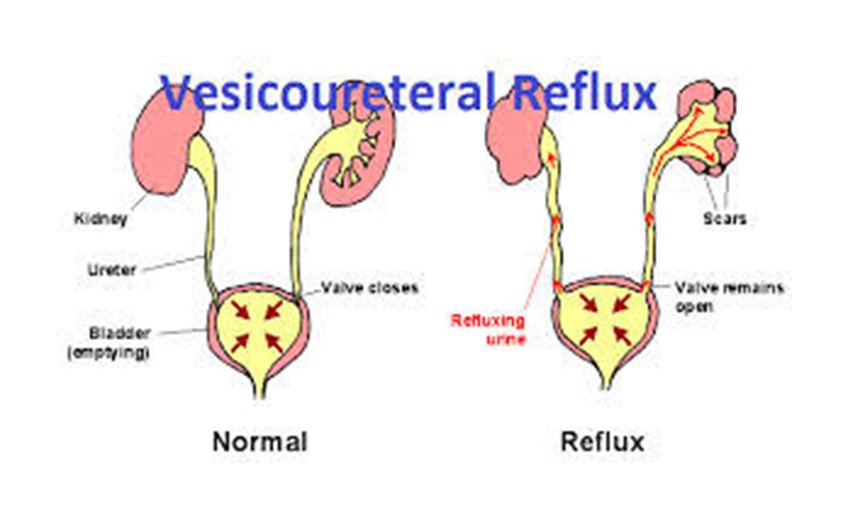What is vesicoureteral reflux?
Vesicoureteral reflux (VUR) is the result of abnormal formation of the normal valve between the kidney and bladder. This valve ensures that urine travels one way from the kidney to the bladder. The most common system of grading reflux (the International Study Classification) includes 5 grades:
- Grade I: urine reflux into the ureter only
- Grade II: urine reflux into the ureter and the renal pelvis (where the ureter meets the kidney), without distention (swelling with fluid, or hydronephrosis)
- Grade III: reflux into the ureter and the renal pelvis, causing mild swelling
- Grade IV: results in moderate swelling
- Grade V: results in severe swelling and twisting of the ureter
Medical or Non-Surgical Treatment
Often reflux will go away with time. The lower the grade of reflux, the more likely it is to go away. The average age for this to happen is 5 to 6 years. This treatment involves:
- Encouraging the child to use the restroom regularly
- Checking that the child has regular stools bowel training
- Prescribing low doses of a preventive antibiotic to avoid a UTI
- Trying other drugs if the child is having trouble with bladder control
Surgery
The goal of surgery is to cure reflux and avoid the risks of continued reflux. Surgery is most often done using general anesthesia.
Reference:
https://www.urologyhealth.org/urologic-conditions/vesicoureteral-reflux-(vur)

